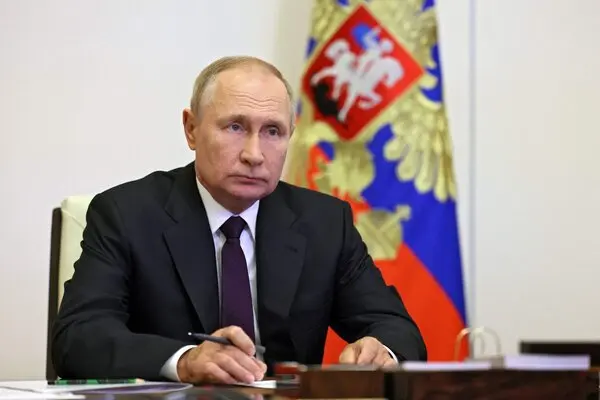President Vladimir Putin has issued a decree permitting foreign nationals who fight for Russia in the ongoing conflict in Ukraine to apply for Russian citizenship for themselves and their families. The decree, announced on Thursday, outlines that individuals who have signed contracts during what Moscow terms its “special military operation” in Ukraine can seek Russian passports for themselves, as well as for their spouses, children, and parents. To be eligible, applicants must provide documentation demonstrating their commitment to a minimum one-year term.
The decree encompasses those who have entered into contracts with the regular armed forces or other “military formations,” a broad description that could encompass groups such as the Wagner mercenary organization. The move appears to be a strategic effort to create additional incentives for foreign individuals with military experience to actively seek involvement in Russian ranks.
Notably, Russia does not publicly disclose data regarding the number of foreigners fighting on its side in the Ukrainian conflict. However, previous reports, including those from Reuters, have shed light on instances such as Cubans joining the military in exchange for substantial bonuses, surpassing 100 times the average Cuban monthly salary. Additionally, there have been reports of Africans recruited by the Wagner mercenary group, with casualties recorded among their ranks.
A declassified US intelligence report has estimated that Russia has incurred significant losses in the Ukraine war, with approximately 315,000 dead and wounded troops—nearly 90% of its personnel at the conflict’s outset. This revelation underscores the toll the conflict has taken on Russian forces, with the prospect of future mobilizations looming.
Russia initiated a rare mobilization in September 2022, involving an additional 300,000 men, marking the first such move since World War Two. Despite ongoing speculation about the potential for another mobilization, especially after the upcoming presidential election in March, in which Putin is expected to secure a new six-year term, the Kremlin has consistently asserted that further mobilizations are unnecessary. Officials have cited the voluntary contracts signed by hundreds of thousands of men in the previous year, committing to becoming professional soldiers.
While both Russia and Ukraine have refrained from disclosing the full extent of their losses during the 22-month conflict, Ukrainian President Volodymyr Zelenskiy recently indicated that the military had proposed mobilizing an additional 450,000-500,000 individuals. In response to the evolving situation, the Kyiv parliament has initiated a review of draft legislation aimed at tightening and expanding mobilization rules, reflecting the ongoing challenges faced by Ukraine in the conflict.
Putin’s latest decree regarding Russian citizenship for foreign fighters is seen as a strategic move to bolster the ranks of Russian forces amid the protracted conflict in Ukraine. The measure extends not only to individuals directly engaged in the military but also to their family members, further emphasizing the effort to attract foreign fighters and provide them with incentives for long-term commitment. As the situation in Ukraine continues to unfold, the geopolitical implications of these developments remain significant, with potential ramifications for the ongoing dynamics of the conflict and regional stability.














